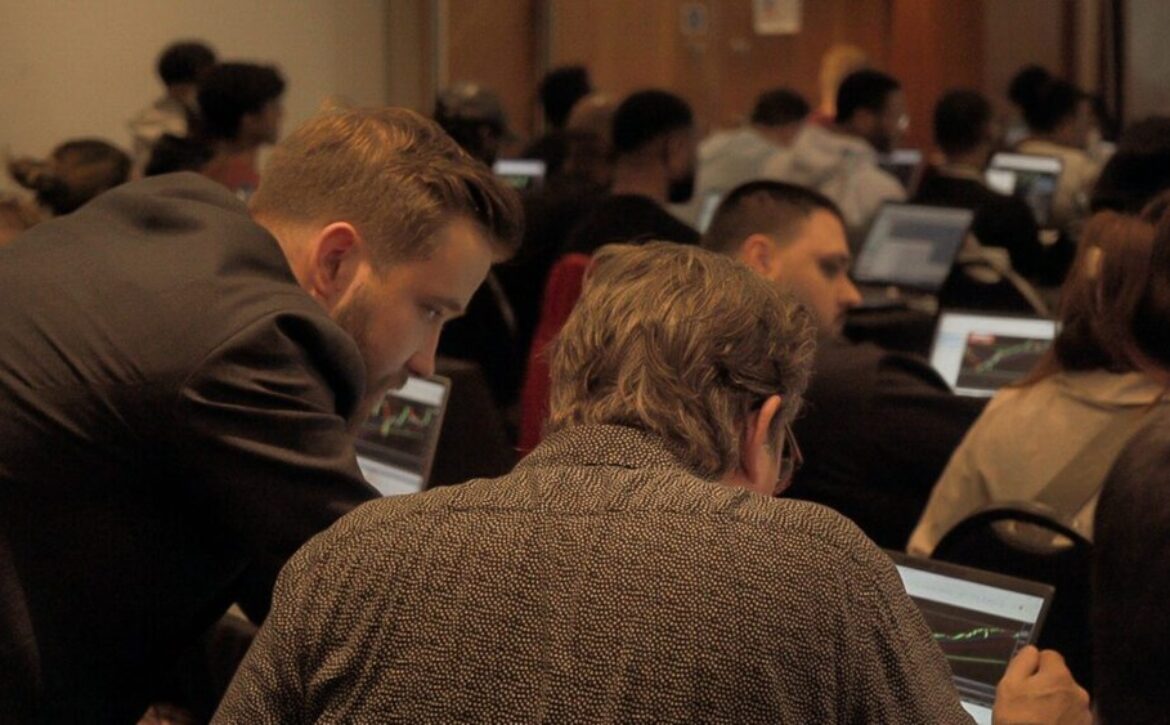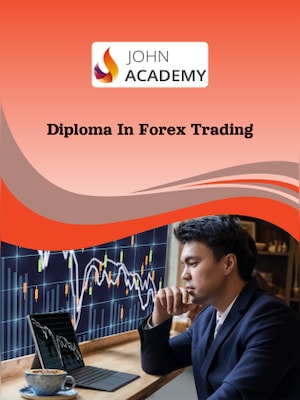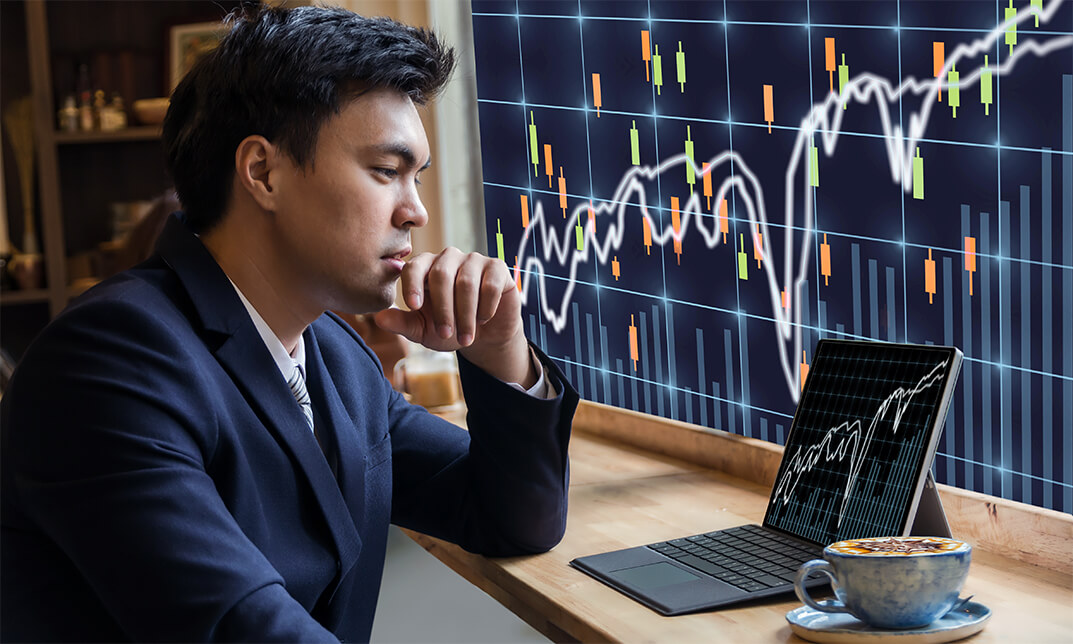
How to Become a Diploma in Forex Trading: Expert Tips
Are you fascinated by the idea of trading currencies and navigating the dynamic world of forex? If you’re eager to dive into this exciting field but unsure where to start, earning a diploma in forex trading might be your perfect stepping stone.
Imagine having the skills and knowledge to make informed trading decisions that could potentially transform your financial future. By the end of this article, you’ll discover a clear path to achieving that diploma, equipping you with the expertise to confidently engage in the forex market.
Stay with us as we unravel the steps you need to take to turn your passion for forex into a rewarding qualification.

The Basics Of Forex Trading
Understanding the basics of forex trading is crucial for beginners. It sets the foundation for a successful trading journey. By grasping these essentials, you can make informed decisions. This knowledge helps in navigating the complex forex market with confidence.
Currency Pairs Explained
In forex trading, currencies trade in pairs. One currency is bought, another is sold. The first currency in a pair is the base currency. The second is the quote currency. Major pairs like EUR/USD are the most traded. They offer high liquidity and lower spreads. Minor pairs involve less common currencies. These can have higher volatility.
Market Hours And Sessions
The forex market operates 24 hours a day. It follows a global schedule across different time zones. The major sessions are the London, New York, and Tokyo sessions. Each session offers unique trading opportunities. Overlapping sessions can see increased market activity. Traders must know when these sessions start and end.
Key Forex Terminology
Forex trading has specific terms you need to know. A pip measures changes in currency value. A lot is a unit of currency traded. Leverage allows traders to control larger positions with smaller capital. Spread is the difference between bid and ask prices. Understanding these terms can improve trading efficiency. They are essential for communicating in the forex market.

Essential Skills For Forex Traders
Becoming a diploma holder in Forex trading requires mastering essential skills. These skills enhance decision-making and trading efficiency. Understanding the market landscape is crucial. Successful Forex traders often possess specific abilities. These abilities help in analyzing trends and managing risks effectively.
Technical Analysis Techniques
Technical analysis is vital for Forex traders. It involves studying price charts and trends. Traders use various tools and patterns. These help predict future price movements. Candlestick patterns and moving averages are common techniques. They assist in identifying entry and exit points. Learning technical analysis can improve trading outcomes.
Fundamental Analysis Insights
Fundamental analysis focuses on economic factors. These factors influence currency values. Traders examine economic indicators like GDP and inflation rates. Central bank policies also play a crucial role. Understanding these elements helps in predicting currency trends. It aids in making informed trading decisions.
Risk Management Strategies
Risk management is crucial in Forex trading. It involves safeguarding investments from significant losses. Traders set stop-loss limits to control potential losses. Diversifying portfolios reduces risk exposure. Calculating risk-to-reward ratios is also essential. These strategies ensure sustained trading success.
Choosing The Right Forex Course
Choosing the right Forex course is crucial for success in trading. A well-structured course offers you foundational knowledge and practical skills. It guides you through the complexities of the Forex market. With many options available, making the right choice can be overwhelming. This section aims to simplify the decision-making process for you.
Accredited Institutions
Accredited institutions ensure quality education. They meet specific standards and offer recognized qualifications. When selecting a Forex course, look for institutions with accreditation. This guarantees a reputable learning experience. It also adds value to your diploma in Forex trading. Accredited institutions provide experienced instructors and a structured curriculum. They often have partnerships with financial organizations. These connections can enhance your learning experience.
Course Content And Curriculum
The curriculum should cover key areas in Forex trading. Look for courses that offer comprehensive content. Technical analysis, risk management, and trading strategies are vital topics. A good course should also include fundamental analysis. Understanding economic indicators is important. Practical sessions are equally essential. They allow you to apply theoretical knowledge. Check if the course includes live trading simulations. These provide real-world experience without financial risk.
Online Vs. In-person Learning
Decide between online and in-person learning. Online courses offer flexibility and convenience. You can learn at your own pace. They are ideal for busy schedules. In-person courses provide direct interaction with instructors. This can enhance understanding and motivation. Consider your learning style and needs. Some prefer the structured environment of a classroom. Others thrive in online settings with self-paced modules. Both methods have their unique advantages.

Building A Trading Strategy
Building a trading strategy is essential for successful Forex trading. It’s the backbone of your trading journey. A well-crafted strategy guides your decisions in the market. It minimizes risk and maximizes profit potential. Crafting a strategy involves setting clear goals, planning, and testing. Each step is crucial in shaping a robust approach to trading.
Identifying Trading Goals
Start by setting specific trading goals. Goals give direction to your trading activities. Do you aim for short-term gains or long-term investments? Define your risk tolerance clearly. Decide how much time you can dedicate to trading daily. Knowing these details shapes your strategy effectively.
Developing A Trading Plan
Once goals are clear, develop a trading plan. A plan outlines the steps to achieve your goals. Include entry and exit points for trades. Set criteria for choosing trades. Identify tools and resources needed for analysis. Ensure your plan is realistic and aligns with your goals.
Testing And Refining Strategies
Testing strategies is vital to see what works best. Use demo accounts to test without financial risk. Monitor results and gather data. Analyze what helps and what hinders success. Refine strategies based on insights gained. Adjust plans to improve outcomes. Continuous refinement leads to a stronger trading strategy.
Tools And Resources For Success
Embarking on a journey to earn a diploma in Forex trading requires the right tools. These resources are essential for success in the complex world of Forex. From trading platforms to mentorship, each plays a critical role in your development.
Trading Platforms And Software
Choose a reliable trading platform. It should provide real-time data and easy navigation. Many platforms offer demo accounts for practice. This helps you learn without risking real money. Popular platforms include MetaTrader 4 and 5, known for their user-friendly interfaces. These platforms support automated trading, too.
Economic Calendars And News Feeds
Stay informed with an economic calendar. It lists important financial events and their expected impact. Timely news feeds offer updates on global market changes. These tools help in making informed trading decisions. Websites like Forex Factory and Investing.com are valuable resources.
Community And Mentorship Opportunities
Join Forex trading communities online. They offer support and shared experiences. Engaging with seasoned traders provides practical insights. Many communities exist on platforms like Reddit and specialized forums. Consider seeking a mentor. A mentor can guide you through complex concepts. They offer valuable feedback and strategies for improvement.
Common Mistakes To Avoid
Embarking on a journey to become a diploma holder in Forex trading is an exciting endeavor. However, as you dive deeper, you’ll find that the path is riddled with challenges and potential pitfalls. Understanding common mistakes that traders often make can save you time, money, and unnecessary stress. Let’s delve into these missteps so you can navigate the Forex market with confidence and skill.
Overtrading And Emotional Decisions
One of the biggest mistakes in Forex trading is overtrading. It’s easy to get caught up in the excitement and make trades left and right. But remember, quantity does not equate to quality. Each trade should be a calculated decision, not a gamble.
Emotions can cloud your judgment. Have you ever placed a trade out of frustration or fear? These emotional decisions can be costly. Take a step back, breathe, and stick to your strategy. Successful traders control their emotions, ensuring each trade aligns with their plan.
Neglecting Market Research
Skipping market research is like driving blindfolded. You wouldn’t trust a plane without a navigator, so why trade without guidance? Thorough research helps you understand market trends, currency behaviors, and economic indicators.
Imagine entering a trade because of a gut feeling rather than data-backed insights. This can lead to unnecessary losses. Make it a habit to study the market daily. Equip yourself with knowledge that guides your trading choices.
Ignoring Stop-loss Orders
Stop-loss orders are your safety net. Ignoring them is a common mistake that can lead to significant financial loss. It’s like going on a road trip without seat belts. Would you risk it?
Even the most skilled traders can’t predict the market’s every move. Stop-loss orders protect your investments from unforeseen downturns. They allow you to manage risk effectively, preserving your capital for future opportunities.
As you continue your journey in Forex trading, ask yourself: Are you setting up for success or stumbling into common traps? By being aware of these mistakes, you can refine your strategy and build a robust trading approach. Avoid these pitfalls, and your path to a diploma in Forex trading will be much smoother and rewarding.
Advancing Your Forex Career
Advance your forex career by earning a diploma in forex trading. Learn essential skills and strategies to succeed. Gain practical knowledge through structured courses designed for all levels. Enhance your understanding of market trends and trading techniques.
Advancing your forex career requires more than just mastering the basics. Once you have your diploma in forex trading, the journey has just begun. Elevate your skills, build connections, and find your unique path in this dynamic market. How do you keep pushing forward? Let’s dive into some practical strategies.
Continuing Education Options
Continuous learning is crucial in forex trading. Markets evolve, and so should your knowledge. Consider enrolling in advanced courses or workshops tailored to specific trading strategies or market conditions. Online platforms like Coursera or Udemy offer courses that fit into your schedule. Or, attend webinars hosted by industry experts to gain fresh insights. Reading remains a powerful tool. Subscribe to financial magazines or follow blogs that discuss the latest trends and analysis. Keeping your skills sharp ensures you stay competitive.
Networking And Professional Development
Building a strong network can open doors to new opportunities. Attend forex conferences or local meetups to connect with other traders. Sharing experiences can lead to valuable insights and collaborations. Join online forums or social media groups dedicated to forex trading. Engaging in discussions can provide different perspectives and solutions to challenges you face. Don’t overlook mentorship. A seasoned trader can offer guidance and advice based on their experiences. Reach out to potential mentors with a clear idea of what you hope to learn.
Specializing In Niche Markets
Consider specializing in a niche market to differentiate yourself. Focus on currency pairs or trading strategies that align with your strengths and interests. For instance, you might excel in trading exotic currency pairs or have a knack for technical analysis. Specialization can make you a go-to expert in that area. Exploring niche markets can also lead to unique opportunities. You’ll gain a deeper understanding of specific market behaviors, setting you apart from generalists. Are you ready to carve out your niche in the forex world?
Frequently Asked Questions
What Is A Diploma In Forex Trading?
A diploma in Forex trading is a specialized educational program. It covers strategies, market analysis, and risk management. Students learn to trade currencies effectively. The course provides foundational knowledge for beginners. It also offers advanced techniques for experienced traders. Completing the diploma can boost your trading skills and confidence.
How Long Does Forex Diploma Take?
A Forex diploma typically takes six months to one year. The duration varies based on course structure. Some institutions offer accelerated programs. Flexible learning options may be available. It’s important to choose a program that fits your schedule. Completing the course can enhance your trading expertise significantly.
Are Forex Trading Diplomas Worth It?
Forex trading diplomas are valuable for gaining structured knowledge. They offer insights into trading strategies and market analysis. Students learn risk management and trading psychology. A diploma enhances your credibility as a trader. It can improve your career prospects in financial markets.
Investing in education can lead to better trading outcomes.
Can Beginners Enroll In Forex Diplomas?
Yes, beginners can enroll in Forex trading diplomas. These programs are designed for all skill levels. They start with basic concepts and gradually progress. Beginners learn foundational trading skills and market analysis. The course guides them through practical exercises. Completing a diploma can help beginners become confident traders.
Conclusion
Becoming a diploma holder in Forex trading takes dedication and patience. Start with understanding basic concepts. Practice consistently on demo accounts to gain confidence. Never rush into live trading without preparation. Choose a reputable institution for your diploma course. This ensures quality education and better learning.
Stay updated with market trends and news. It helps in making informed decisions. Networking with fellow traders can offer valuable insights. Keep learning and improving your skills. Remember, success in Forex trading is a journey, not a destination. Stay committed, and your efforts will pay off.




